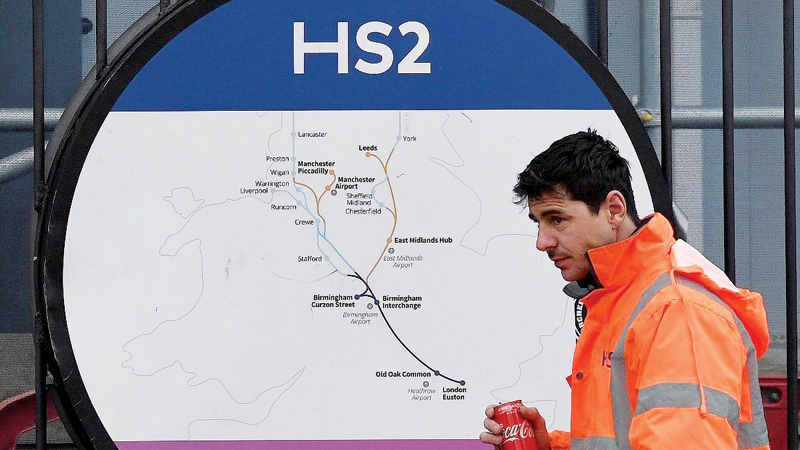

Boris Johnson has given foreign investors in the UK a reason to feel less jittery. On Tuesday the UK prime minister approved the so-called High Speed 2 (HS2) project, following a government review.
Together with another key recent call on Chinese telecoms firm Huawei Technologies, it implies that the government tasked with delivering Brexit is not incapable of identifying least-bad strategic options.
The €107 billion HS2, Europe’s largest infrastructure project, which aims to link London to northern English cities like Leeds, Birmingham and Manchester, is controversial. Critics have called for it to be abandoned, on the grounds that northern England could use the sum to upgrade its creaking and overcrowded local rail network.
As project costs have more than doubled, the government’s so-called benefit-cost ratio metric has fallen from a situation where the benefits are two times the costs to one where they are almost equal.
Still, Britain lags behind France and Spain when it comes to high speed rail services. Its overall existing rail system relies on an overused network congested with freight, plus slow and inefficient commuter trains.
HS2 is less about cutting journey times between cities than offering a path to relieve that pressure, which should reduce the crowding on local routes.
While the government’s newly published review states that further investment will be needed to make that happen, green-lighting HS2 shouldn’t prove a zero-sum game.
More importantly, HS2 sends a signal of sorts to foreign investors looking askance at Britain’s decision to quit the European Union. Johnson’s decision last month to provide state assistance to keep small regional UK airline Flybe afloat was a worrying sign that his government was devising policy on the hoof.
Insofar as HS2 might annoy northern voters that recently backed Johnson in December’s general election, its approval suggests a capacity to put long-term strategic imperatives over immediate political gain.
That dovetails with Johnson’s recent permission for Huawei to take a limited role in the construction of Britain’s superfast 5G networks, despite objections from US President Donald Trump.
As the UK heads into a difficult EU trade negotiation, that gives at least the impression that someone is planning the nation’s post-Brexit route rather than just manning the wheel. — Reuters
Oman Observer is now on the WhatsApp channel. Click here



